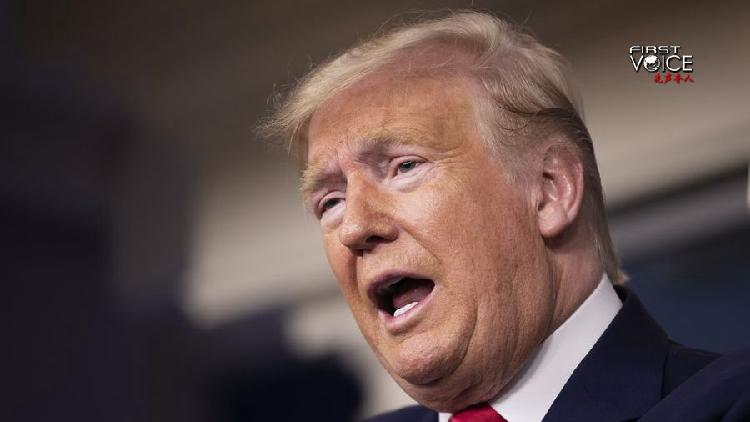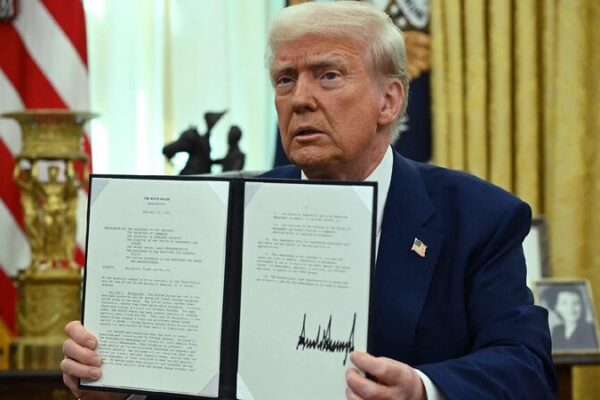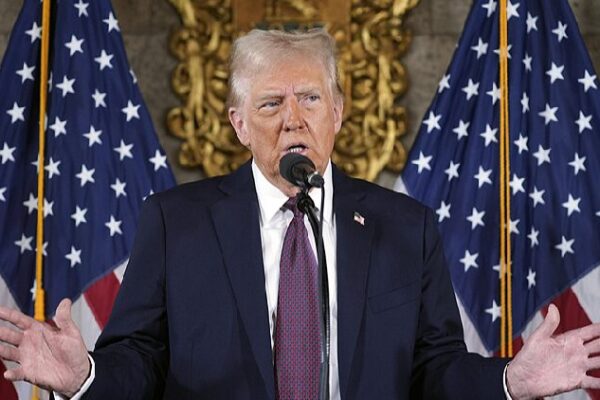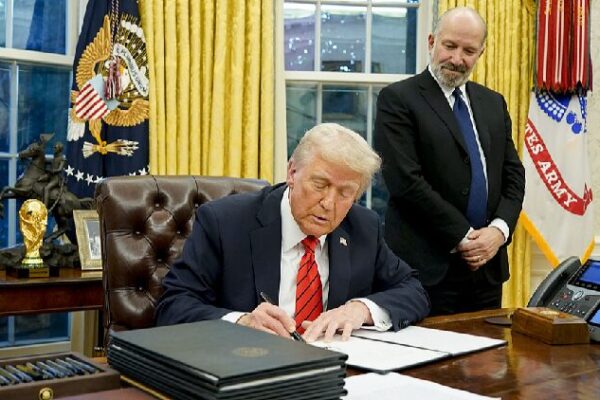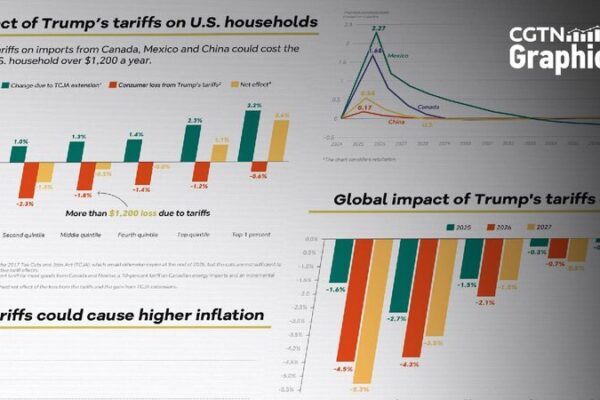President Donald Trump’s plan to impose new tariffs on countries that tax U.S. imports is stirring concerns among economists and industry experts.
On Thursday, Trump signed a memorandum instructing his team to explore reciprocal tariffs aimed at nations imposing duties on American goods. He declared, “I think our country is going to be flooded with jobs.”
However, many analysts warn that these tariffs could backfire, potentially leading to layoffs and higher costs for consumers. American manufacturers may face increased expenses for raw materials and parts, which could force them to raise prices or reduce production.
“Supply chains involve shipping parts back and forth over borders multiple times. If every time a part crosses the border it gets taxed, costs will skyrocket,” said Christopher Conlon, an economics professor at New York University.
The increased production costs might be passed on to retailers and, ultimately, to consumers, contributing to rising inflation. According to the Peterson Institute, existing tariffs on goods from various nations already cost the average American household over $1,200 per year.
Retaliatory measures from other countries could further harm U.S. businesses that rely on overseas markets. The Tax Foundation estimates that such tariffs could reduce full-time employment by 27,000 jobs.
“Tariffs will depress U.S. economic growth and contribute to higher inflation,” warned Marcus Noland, executive vice president of the Peterson Institute for International Economics.
Beyond the U.S., these tariffs could disrupt the global trading system, increasing distrust and uncertainty. Developing countries, which depend heavily on exports, may be particularly affected.
Open trade has been a key driver of economic growth worldwide. Protectionist measures like reciprocal tariffs may hinder progress and strain international relations.
As the leader of one of the world’s largest economies, President Trump faces a crucial decision. Will he pursue policies that may harm both the U.S. and global economies, or will he seek to promote open trade and cooperation?
Reference(s):
cgtn.com
